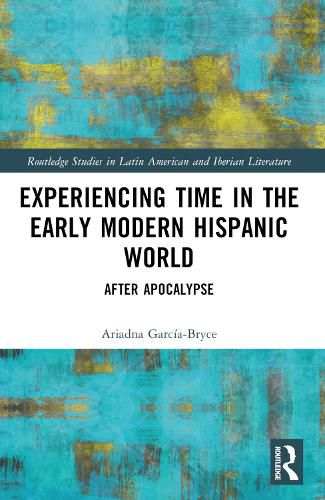Readings Newsletter
Become a Readings Member to make your shopping experience even easier.
Sign in or sign up for free!
You’re not far away from qualifying for FREE standard shipping within Australia
You’ve qualified for FREE standard shipping within Australia
The cart is loading…






This book considers the new ways time was experienced in the sixteenth- and seventeeth-century Hispanic world in the framework of global Catholicism. It underscores the crucial role that the imitation of Christ plays in modeling how representative writers physically and mentally interiorize temporal impermanence as the Messiah's suffering body becomes a paradigmatic as well as malleable marker of the avatars of earthly history. Particular attention is paid to the ways in which authors adapt Christ-centered conceptions of existence to accommodate both a volatile post-eschatological world and the increased dominance of mechanical clock time. As novel means of communing with Christ emerge, so too do new modes of sensing and understanding time, unleashing unprecedented cultural and literary reinvention. This is demonstrated through close analyses of writings by such influential figures as Saint Ignatius of Loyola, Saint Teresa of Avila, Carlos de Sigueenza y Gongora, and Sor Juana Ines de la Cruz.
$9.00 standard shipping within Australia
FREE standard shipping within Australia for orders over $100.00
Express & International shipping calculated at checkout
This book considers the new ways time was experienced in the sixteenth- and seventeeth-century Hispanic world in the framework of global Catholicism. It underscores the crucial role that the imitation of Christ plays in modeling how representative writers physically and mentally interiorize temporal impermanence as the Messiah's suffering body becomes a paradigmatic as well as malleable marker of the avatars of earthly history. Particular attention is paid to the ways in which authors adapt Christ-centered conceptions of existence to accommodate both a volatile post-eschatological world and the increased dominance of mechanical clock time. As novel means of communing with Christ emerge, so too do new modes of sensing and understanding time, unleashing unprecedented cultural and literary reinvention. This is demonstrated through close analyses of writings by such influential figures as Saint Ignatius of Loyola, Saint Teresa of Avila, Carlos de Sigueenza y Gongora, and Sor Juana Ines de la Cruz.